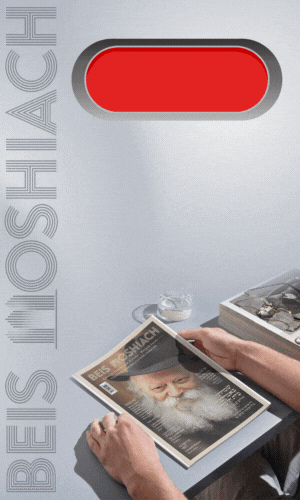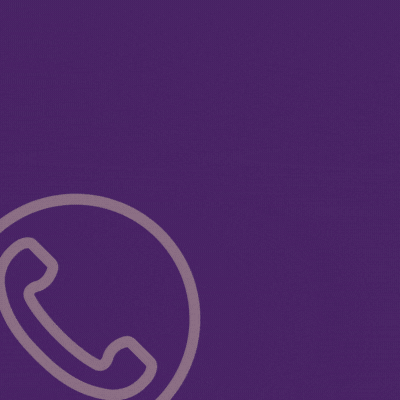20th Yartzeit of R’ Fitzy Lipskier
In honor of the 20th yartzeit of R’ Fitzy Lipskier OBM, his son Motti writes about the impact he made on him and so many others during his lifetime ● Full Story
By Rabbi Mordechai Lipskier
For my 14th birthday, my parents promised me a calculator watch (a luxury in 1995), but Hashem had other plans. Just four days before my birthday my parents were in a car accident; my father’s neshama returned to its maker and my mother, may she live and be well, was in the hospital for several months.
On my birthday, during shivah, my brother-in-law asked me what my parents had planned to give me, and several hours later his parents, Rabbi Dovid and Mrs. Faigy Rapoport, presented me with the watch.
After the shivah, a classmate of mine, Mendy Greenberg, mustered his strength and told me, “Not long ago, your father saw me and a few other boys enjoying our new digital watches, and in his usually friendly manner shared a thought with us, ‘They used to say that a watch is a shtiller mussar zogger (a quiet reprimander-their tick quietly reminds us of the passing time), but today, with digital watches, they’ve become silent musser zoggers; we don’t even hear them tick!'”
In a way, this message encapsulates my father’s life and teaches us how he accomplished so much in such a small amount of time.
When Does he Teach you?
I once asked a group of fourteen-year-old yeshiva boys I was teaching, “When does your father teach you?” Most answered, “During the week,” or, “On Shabbos”. One boy added, “Anytime we’re together my father makes sure to teach me something-Torah, life-lessons, etc.”
Truthfully, though, these boys had no idea just how much their parents teach them all the time.
It boggles my mind to think of just how much my father taught me in the fourteen short years we spent together. His weekly visits to his mother, to fix things around her house and sing Yiddish songs with her, ingrained in me the meaning of kibbud em. The respect and admiration he showed my mother demonstrated true shalom bayis. And the reverence he showed teachers and elders made clear who and what we value.
Listening to my father hum while preparing for Shabbos and Yom Tov elicited a strong sense of love for our heritage. His asking me over vacation what I had learned that day, adding, “A Jew doesn’t let a day pass without studying Torah,” and the excitement with which he himself learned, engrained within me a deep appreciation for learning.
Seeing my father happy, active and upbeat taught us to live a good life even without a lot of money, and knowing he anonymously dropped groceries at the doors of community members who were financially strapped taught us to be sensitive to others (he made sure we never knew whose houses they were).
His weekly fix-it crusades, patching the roof and raking the leaves, or building bookcases and planting a garden were all learning experiences as well.
All this, of course, is in addition to the countless minhagim he taught us simply by performing them time and again.
Not only his family, but also his students learned from him. The children of his Tiferes students often tell me how much they know about my father from their fathers. Some mention niggunim they know and others mention the Shabbos table minhagim they’ve embraced. One “grandchild” told me that whenever a decision needs to be made in their home, his father asks, “What would Rabbi Lipskier say about this?”
How Did he Do it?
How did my father manage to reach people so deeply and in so many different ways?
He listened to the clock’s silent message and truly understood the value of each moment.
My father was what Chassidus calls a penimi, someone who’s entirely devoted to whatever he’s doing at that moment. Whether it was bathing the kids, teaching them to ride bikes, or giving a Chassidus shiur in yeshiva, it was as if nothing else was important at the time. He was a master at living in the moment.
His entire life revolved around the Rebbe. If the Rebbe asked something of chassidim, it became my father’s priority, whether it meant hanging a Moshiach sign over the yeshiva driveway or proudly handing out the “good cards” to anyone he’d meet.
(His sincerity influenced us so strongly that when the highway patrol officers came to our door to deliver the news of the accident and gave my younger sister Leah my father’s wallet, leaving the rest to our imaginations, she instinctively reached into the wallet, handed each of them a card and whispered, “My father would want you to have this.”)
This attitude towards life, making every moment important and meaningful, is something he learned from the Rebbe as well.
Here and Now
This is not merely a tribute to my father; he wouldn’t appreciate that. No, this is a reminder to reflect upon and reevaluate how we spend our time, particularly time with our families.
Not too long ago, a relative of mine came to town for the day and asked that I give him a ride to the airport so we could spend some time together. In the car, this person nudged me about not being on WhatsApp. “You’re missing out on so many opportunities to stay in touch with people,” he said. But, ironically, this person completely turned down the opportunity to have a quality conversation because he was on his phone WhatsApping.
Technology has come a long way since 1995. There are wrist-watches today that can do more than the desk-top computers of the 90’s. Along with that, quality time spent with our loved-ones can be more compromised than ever before.
What an opportunity to have a few minutes to walk with our children, and what a shame if we spend it buried in our phones. Does a snow day mean more WhatsApping and emailing, or more family time and learning?
We will, G-d Willing, have more than fourteen years to teach our children, but each of those moments are irreplaceable.
His Pen
The last thing my father learnt with me was a maamar (in preparation for my birthday) which mentions the concept of neshamos in Gan Eden listening to Jews learning Torah. The last thing he gave me, on his way to the car for that fateful trip, was his pen, so that I could write down my notes and questions.
I’m taking his pen as a message that I should write about his influence on my life and share it with others who may benefit from it. And, hopefully, he’s looking down from Gan Eden and enjoying nachas from his family as they engage in Torah study and spreading Chassidus.
But to be safe, I’ll say as my mother says: if my father doesn’t like what we’re doing down here, he should nudge Hashem to bring Moshiach, and come back to tell us what’s on his mind.
404
Join ChabadInfo's News Roundup and alerts for the HOTTEST Chabad news and updates!










































very dear motti,and family I send you much love
I am Meir Weiss in the corner desk very near your fathers table in the zal 1987-1990
I remember my 3 full years in tiferes as if yesterday
What name should we put instead?